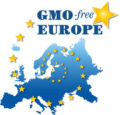Countries
There are many active organisations in Europe and in the world that are working for GMO-free agriculture and food production. By clicking a flag, you see the page for each country. If you have any additional information about your country, please let us know. Thank you for your help!

 European Union
European Union Austria
Austria Belgium
Belgium Bulgaria
Bulgaria Croatia
Croatia Cyprus
Cyprus Czechia
Czechia Denmark
Denmark Estonia
Estonia